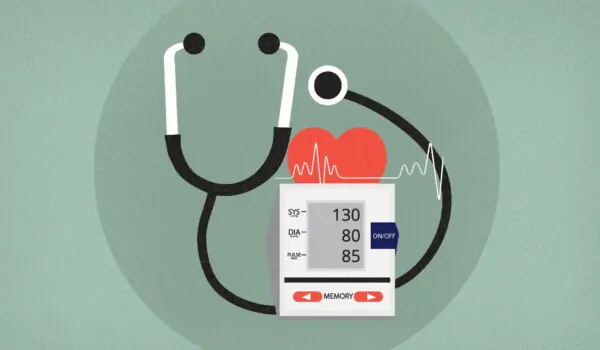
What exactly is high blood pressure, also known as hypertension, and why is it important to keep it under control for our overall health and well-being?




Lost your password? Please enter your email address. You will receive a link and will create a new password via email.
Please briefly explain why you feel this question should be reported.
Please briefly explain why you feel this answer should be reported.
Please briefly explain why you feel this user should be reported.
Hypertension, often known as high blood pressure, is a medical disorder marked by increased pressure in the arteries. Blood pressure is the force produced by blood against the artery walls as the heart pumps it throughout the body. It is measured in millimeters of mercury (mm Hg) and expressed as two numbers: systolic pressure (pressure when the heart beats) and diastolic pressure (pressure when the heart is at rest).
Hypertension is seen as a significant health problem for a variety of reasons.
Risk of Cardiovascular Diseases: High blood pressure puts additional strain on the heart and blood vessels, raising the risk of heart attack, stroke, heart failure, and peripheral arterial disease.
Persistent high blood pressure might cause organ damage over time. It can cause kidney damage (nephropathy), eye damage (retinopathy), and blood vessel damage in the brain, which increases the risk of cognitive impairment.
Hypertension is a leading risk factor for premature death worldwide. It considerably raises the chance of death from cardiovascular disease and other consequences.
Silent Condition: Hypertension is sometimes referred to as a “silent killer” since it rarely causes apparent symptoms in its early stages. Many people are unaware that they have high blood pressure until it is discovered during a routine medical check-up or after a significant issue.
Uncontrolled hypertension can have a substantial influence on quality of life, generating symptoms such as headaches, fatigue, eye issues, and difficulty breathing.
Managing hypertension is critical for lowering the risk of related problems while also increasing general health and wellbeing. Lifestyle modifications such as eating a nutritious diet, staying at a healthy weight, exercising regularly, limiting alcohol use, lowering sodium consumption, and managing stress can all help moderate blood pressure. In addition to lifestyle changes, drugs such as diuretics, ACE inhibitors, beta-blockers, calcium channel blockers, and angiotensin II receptor blockers (ARBs) may be administered to lower blood pressure and minimize the risk of problems. Blood pressure should be monitored and managed on a regular basis to preserve good health and lower the risk of cardiovascular problems.